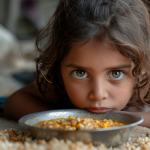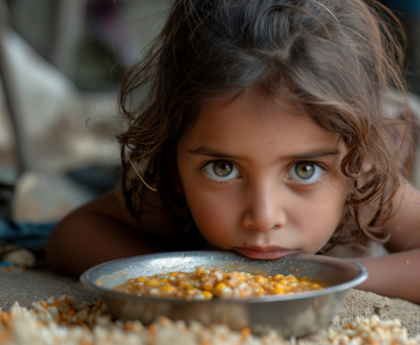
During their recent Summit, the African Union recently convened Heads of State to launch their Year of Education 2024 under the theme “Educate an African fit for the 21st Century: Building resilient education systems for increased access to inclusive, lifelong, quality, and relevant learning in Africa”.
By declaring 2024 as the Year of Education, the AU intends to galvanize action to accelerate the achievement of SDG 4 and the Continental Strategy for Education in Africa (CESA).
Speaking on behalf of UNICEF, Lieke Van Der Wiel, DRD ESARO said, “Education is the right of every child and the foundation for children’s well-being, happiness, growth, and lifelong learning. It is an enormous positive step that the AU has translated the above and called for a year of education in 2024. This gives us a tremendous opportunity and responsibility to use the momentum to the fullest and develop the human capital for the future of the continent.”
Over the past two decades, African Governments have made substantial efforts to get children into schools. Completion rates in Africa between 2000 and 2022 went from 52 to 69 percent in primary, 35 to 50 percent in lower secondary and 23 to 33 percent in upper secondary education. This is impressive: today more children are in school than ever before, and completion rates have increased at all levels.
However, despite this progress, more than one in four (29 per cent) school-age children were still out of school on the continent, with a concerning statistic revealing that the out-of-school population in sub-Saharan Africa increased by 12 million over 2015–2021. Quality is also of concern even for those in school: 9 out of 10 children in sub-Saharan Africa could not read and understand a simple text by the age of 10.
Education, especially foundational learning and early childhood education, is one of UNICEF ESARO’s flagship programmes for 2024. Throughout the year UNICEF will work with governments, key regional bodies and development partners to rethink the models and modalities of education and skills development needed for Africa in the 21st century.
In particular, we will support governments and other education decision-makers around these four advocacy asks:
- Invest in proven and cost-effective solutions to improve literacy and numeracy in the early years, by equipping children, every girl and boy, with solid foundational and socio-emotional skills, which, in the long run, will help reverse performance gaps and better position children to obtain higher-level knowledge and competencies in later years, including digital skills and climate change knowledge. This must start with ensuring that teachers and relevant support personal are adequately trained to support quality learning for every child. Improving literacy and numeracy starts with a solid early learning. Every child must have access to early childhood education at a minimum one year of organized learning for effective transition to primary school.
- Ensure that funding is sufficient and appropriate. Throughout the years you must have heard the cliché of at least 20% of a country’s total budget should invested in education. Part of that budget should be dedicated to children’s critical first years. At least 10% should be invested in pre-primary education thus increasing access to quality, inclusive early childhood education.
- Investments must be early (so more to pre and primary than to tertiary education. We need to go beyond our traditional thinking of schools as buildings but schools as places, any place where learning take place. Why waiting for schools to be built to catch up with the fast-growing population if there are community centres, churches and mosques. The more innovative we are in our thinking and practices, the more progress in transforming for real the education system.
- Investments must prioritize the most likely to be left behind. Education is a human right for all children, always and everywhere – girls, children with disabilities, children from rural or poor communities or those experiencing emergency or crisis situations.
This post was originally published on 3rd party site mentioned in the title of this page




